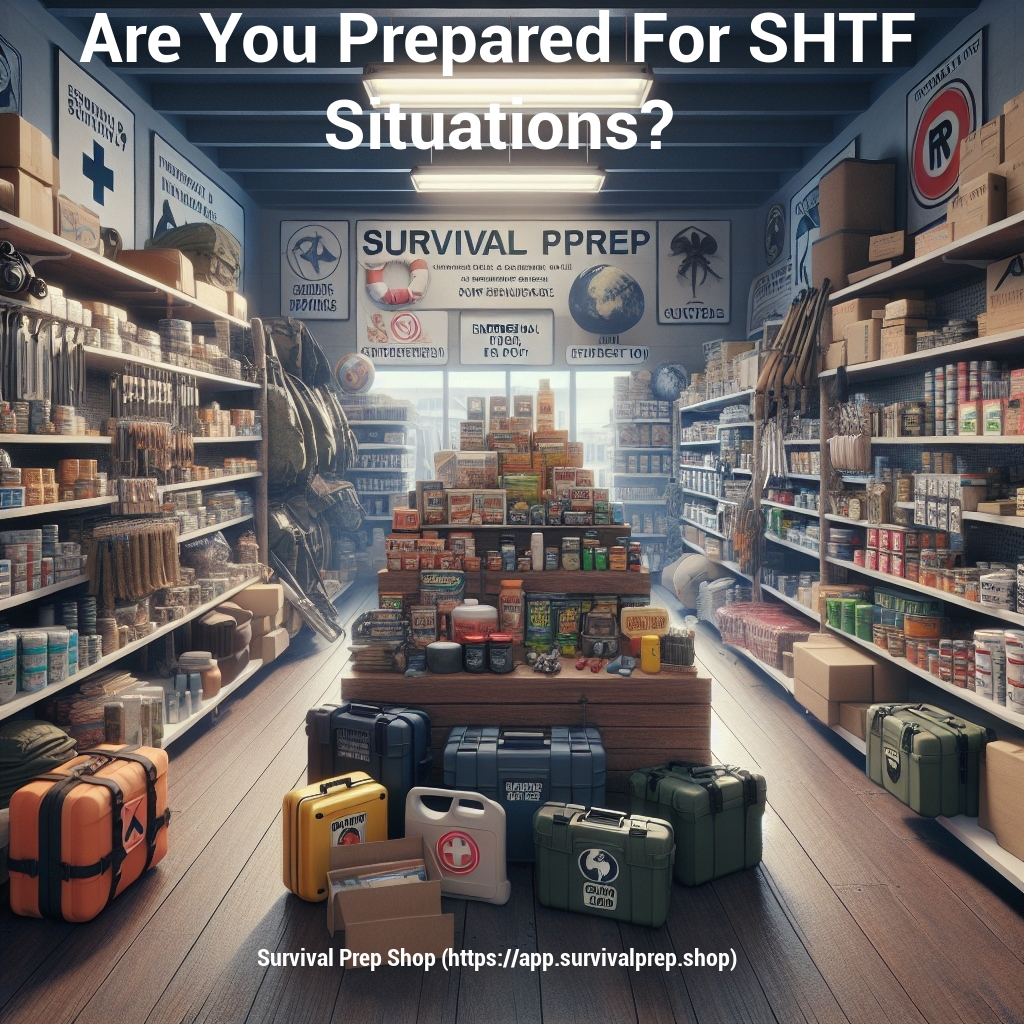
Hello everyone, and welcome to the Survival Prep Shop.
I’m delighted to join you in another invigorating discussion about all things survival. As we explore together, keep in mind that my advice comes from a place of personal practice and reflection.
Reading the stories about what’s going on around the world can be enough to cause you to lose sleep. It seems every time you turn around, there’s another bad situation brewing – or happening as you watch it unfold on live TV.
It’s enough to make you feel anxious and worried about the future of the world we live in. The truth is, there’s not a lot that you can do to stop bad conjunctions from happening. You can’t control the weather and you can’t control people with a vendetta, and you can’t stop a breakdown in society. You can’t make sure that the government is going to be operational.
But, just because there are some things outside the realm of your control doesn’t mean that you shouldn’t be prepared. You need to act now to handle what you can take care of.
There are so many areas that are under your control. By taking care of these elements, you can make sure that you and your family are prepared – regardless of what comes your way.
Ordinary Emergencies Versus SHTF Situations
Always prepare for the unexpected because the unexpected always happens. It just comes under various labels. Sometimes people will label something an emergency based on how it affects their comfort level.
There are many inconvenient and annoying times in life that don’t actually fit the parameters of a true emergency. When an emergency hits, you need to identify what the emergency actually is, the person or group of people the emergency affects, and the potential duration of the dy. This will help you be able to define if it’s an ordinary emergency or a SHTF situation. With every emergency, you should be able to determine if the situation is salvageable – or if it’s not.
When a situation is unsalvageable, that’s a good sign that you’re dealing with a SHTF situation. There are four different kinds of emergencies. The first kind is an ordinary emergency.
The second is a SHTF emergency. The third is a short term emergency and the fourth kind is a long term emergency. There’s usually a strong link between a SHTF emergency and a long term emergency, although a SHTF one can also be related to a short term emergency.
A flood that happens in your area where the water covers the roadways is usually an ordinary emergency. These kinds of floods will resolve in a short term. The damage to personal property and the potential for fatalities is fairly low.
However, if the flood occurs after several days of torrential downpours, it can easily become a SHTF emergency. An example in this case would be if the flooding became so bad that the waters washed away bridges and roads and cut people off from being able to get out to get the things that they needed to survive.
It would also be a SHTF emergency if the water depth reached a point to where it flooded homes and only rooftops were visible. A power outage is often thought to be an emergency, but this is only an emergency if it affects a life such as someone who’s depending on electricity to stay alive.
Losing power is inconvenient – but it’s usually a short term situation that doesn’t markedly change your life. Assuming the crews will be out repairing the power, you might be inconvenienced a day or up to a week, but nothing you can’t ride out.
There can be times where a power outage becomes a SHTF emergency. In a case like that, it would be an emergency if power grids went down and the blackout was going to be long term.
For those who are unprepared, there would be loss of perishable food, no ability to heat (or cool) a home, and the water supply could be affected. Then, it would be a SHTF emergency.
When the power goes down long term, it affects every aspect of your life – and not just at home. When there’s extended loss of electricity, it can bring a city to a halt.
Businesses can’t operate cash registers. Gas stations can’t pump gas. Traffic control lights don’t operate, and driving can become hazardous. If you have a situation where there are long term power outages, then you run into instances where people hurry to the grocery store and they fight to take whatever they can get their hands on.
This kind of behavior happens because
